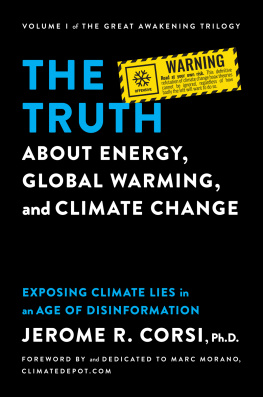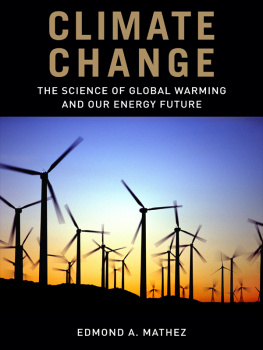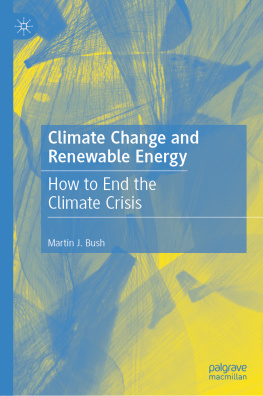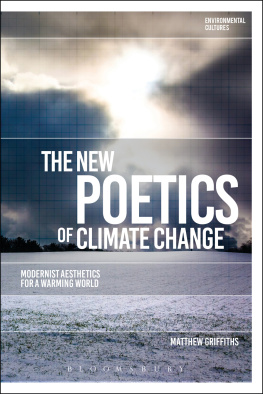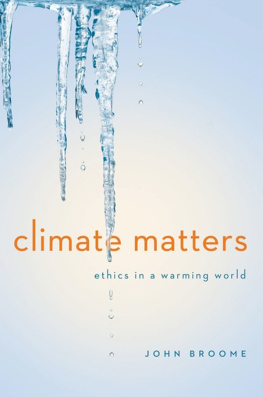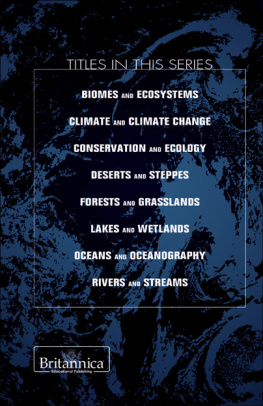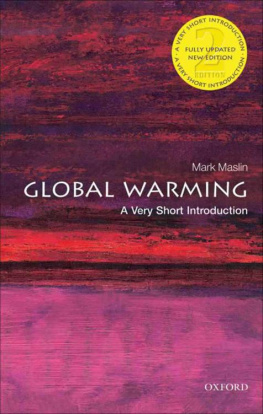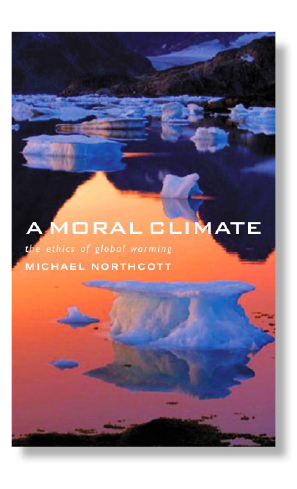First published in 2007 by
Darton, Longman and Todd Ltd
1 Spencer Court
140-142 Wandsworth High Street
London SW18 4JJ
2007 Michael S. Northcott
The right of Michael S. Northcott to be identified as the author of this work has been asserted in accordance with the Copyright, Designs and Patents Act 1998.
A catalogue record for this book is available from the British Library.
Scripture quotations are taken from the New Revised Standard Version, Anglicized Edition, copyright 1989,1995. All rights reserved. Division of Christian Education of the National Council of Churches of Christ in the United States of America.
Digital Edition converted and formatted by Andrews UK Ltd 2010
Dedication
For Rebecca
Preface
This book has been something of an odyssey. It began as a sabbatical research project in the Lilly library on Duke Universitys belle poque East Campus in North Carolina in January 2005. I am very grateful to Dean Gregory Jones of the Duke Divinity School and Dean William Schlesinger of the Nicholas School of the Environment and Earth Sciences for inviting me to take up a visiting professorship there. I also thank Ellen Davis, Stanley Hauerwas, Amy Laura Hall, John Utz, Stuart Pimm, Eric and Laura Pritchard and Kyle and Kelly Van Houtan for their hospitality and friendship during my sabbatical there, and for their responses to the first glimmerings of my findings in this project. Since then I have presented ideas from this book at the Hong Kong Baptist University, Oxford Brookes University, the University of Nottingham, the Centre International Reform at John Knox House, Geneva, Trondheim University, Liverpool Cathedral, Christ Church, Oxford, and the Greenbelt Festival. I am grateful to my hosts at these occasions for their hospitality, and to the audiences for helping me think through the issues in this book with greater clarity.
When I write down the journeys undertaken while writing this book it becomes evident that the book already has a carbon footprint even before being published. I can only say in mitigation that within the United Kingdom I travelled by train, and in the course of writing I scrapped my car and did not replace it. Offsetting the carbon used in flying is no substitute for not flying and yet it is hard to see how the required international exchange of academic life can be sustained without flying. But in the past scholars exchanged letters in which they debated their ideas and challenged one another across continents and over many years, often without meeting face-to-face. And such conversations, because they were recorded in the form of letters, are a valuable scholarly resource many centuries later. Unless we can find a low-carbon form of flying space frames attached to helium balloons offer the only form of air travel that is as low-carbon as rail or coach travel, but no airlines are proposing to build them scholars will need to return to writing letters and exchanging papers at a distance, or else adopt new versions of international exchange on the internet instead of attending inter-continental meetings.
Well, enough of confessions. I also want to thank those friends and colleagues who have read through the whole of this work before publication, including Bryan Brock, Tim Foulger, Elizabeth Vander Meer, Joslyn Ogden, William Schlesinger, Wilf Wilde and the anonymous reader engaged by Darton, Longman and Todd. I am very grateful for their perceptive criticism and generous advice. I am also grateful to colleagues in the School of Divinity in the University of Edinburgh for granting me the research leave in which this book began, and for bearing with me in its latter stages as I devoted time to bringing it to completion. I thank the librarians at New College library, Duke University Library and the National Library of Scotland, where much of the research was undertaken. I also thank the unsung digital librarians both at Duke and Edinburgh whose genius in linking up the scholarly universe through digital access to journals and other research resources made the construction of such a cross-disciplinary work so much easier. Without their assistance it would not have been possible to write this book in the interstices of the normal demands of academic life. I thank Virginia Hearn, who commissioned this book for Darton Longman and Todd. And finally I thank my daughter Rebecca, who has borne with the frequent travels this book has involved. Rebecca is the youngest of our three children and as she now begins to make her way in the world she reminds me that there are new agents and new possibilities and the young can behave differently.
I completed this manuscript in the week in which the world celebrated the 200th anniversary of the abolition of slavery. This is a propitious moment to finish a book on global warming. The industrial revolution began by enslaving human beings to its imperatives, expropriating their common lands and wealth and enslaving their labour power and then even their bodies as tradeable chattels. Industrialism is now enslaving the climate of the planet to the same imperatives of market values and property accumulation. And the international arrangements so far constructed to resolve this crisis are turning the climate, and carbon dioxide, into traded chattels through carbon trades and offsets. What empowered many individuals around the world in the struggle against the evils of slavery and the coercive injustices of early industrialism was a spiritual vision of divine grace. Only such a vision can save the present generation from subjecting the peoples and species of the earth to a future of dangerous climate change. Mary, the Mother of Jesus, had an overwhelming vision of grace at the annunciation of the birth of Christ by the Angel Gabriel. Her response was to submit to its authority let it be to me according to your word. The earth is an authority more present to us than the angels.
Michael Northcott
Feast of the Annunciation, 2007
Quotes
For they sow the wind,
and they shall reap the whirlwind.
Hosea 8:7
When it is evening, you say, It will be fair weather; for the sky is red. And in the morning, It will be stormy today, for the sky is red and threatening. You know how to interpret the appearance of the sky, but you cannot interpret the signs of the times.
Matthew 16:23
Take away justice and what are kingdoms but large-scale criminal enterprises.
Augustine, De Civitate Dei
People will not look towards posterity when they fail to reflect on past generations.
Edmund Burke, Reflections on the Revolution in France
A change in the weather is sufficient to recreate the world and ourselves.
Marcel Proust, La Recherche du Temps Perdu
Introduction
Take up weeping and wailing for the mountains,
and a lamentation for the pastures of the wilderness,
because they are laid waste so that no one passes through,
and the lowing of cattle is not heard; both the birds of the air and the animals have fled and are gone.
I will make Jerusalem a heap of ruins, a lair of jackals;
and I will make the cities of Judah a desolation without inhabitant.
Who is the man so wise that he can understand this? To whom has the mouth of the Lord spoken, that he may declare it? Why is the land ruined and laid waste like a wilderness, so that no one passes through? And the Lord says: Because they have forsaken my law which I set before them, and have not obeyed my voice, or walked in accord with it, but have stubbornly followed their own hearts and have gone after the Baals, as their ancestors taught them.
Jeremiah 9:1014
The beautiful island of Tasmania is home to the last great eucalyptus rainforest in Australasia. The Eucalyptus Regnans is the earths tallest hardwood species and mature trees reach 90m into the air and are up to 20m in girth. The rich, moist forest floor and the tree canopy is home to thousands of species of insects, birds and small mammals and to numerous kinds of mosses, lichen and tree ferns, some of which, like Diksonia Antarctica, the Tasmanian tree fern, are unique to the island. Gunns, a large timber company, has been clear-cutting this rare forest for many years. In the next decade it plans to work its way through much of the rest of the island, in the teeth of strong local opposition, but with the support of the Australian government. Gunns clears 30 hectares of old growth rainforest a day to feed its woodchip and paper pulp factories, despite extensive local opposition. Pro-logging lobby groups, and Gunns itself, have considerable influence over the political process in Australia and receive far more media coverage than conservation groups. Those who publicly oppose logging do so at considerable risk: the homes and businesses of individuals who have spoken out against the wood chip industry in Tasmania have often been burned to the ground. Despite protests from Australian scientists, citizens and faith groups, the timber of this wondrous island is being turned into wood chip and paper pulp while the remaining forest once the big trees are harvested is burned to the ground with napalm and then replanted with a monocrop of eucalyptus trees. Around the tree nurseries the company plants blue carrots treated with a lethal toxin in the ground so that any small mammals that survive the burning of the forest are killed to prevent them eating the young trees.



